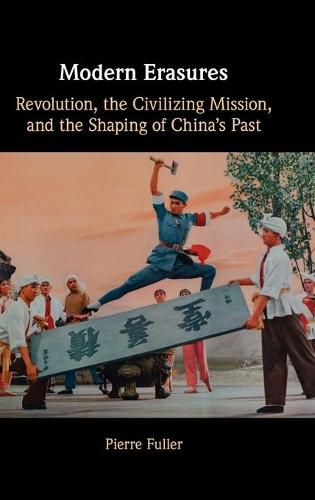Readings Newsletter
Become a Readings Member to make your shopping experience even easier.
Sign in or sign up for free!
You’re not far away from qualifying for FREE standard shipping within Australia
You’ve qualified for FREE standard shipping within Australia
The cart is loading…






Modern Erasures is an ambitious and innovative study of the acts of epistemic violence behind China’s transformation from a semicolonized republic to a Communist state over the twentieth century. Pierre Fuller charts the pedigree of Maoist thought and practice between the May Fourth movement of 1919 and the peak of the Cultural Revolution in 1969 to shed light on the relationship between epistemic and physical violence, book burning and bloodletting, during China’s revolutions. Focusing on communities in remote Gansu province and the wider region over half a century, Fuller argues that in order to justify the human cost of revolution and the building of the national party-state, a form of revolutionary memory developed in China on the nature of social relations and civic affairs in the recent past. Through careful analysis of intellectual and cultural responses to, and memories of, earthquakes, famine and other disaster events in China, this book shows how the Maoist evocation of the ‘old society’ earmarked for destruction was only the most extreme phase of a transnational, colonial-era conversation on the ‘backwardness’ of rural communities.
$9.00 standard shipping within Australia
FREE standard shipping within Australia for orders over $100.00
Express & International shipping calculated at checkout
Modern Erasures is an ambitious and innovative study of the acts of epistemic violence behind China’s transformation from a semicolonized republic to a Communist state over the twentieth century. Pierre Fuller charts the pedigree of Maoist thought and practice between the May Fourth movement of 1919 and the peak of the Cultural Revolution in 1969 to shed light on the relationship between epistemic and physical violence, book burning and bloodletting, during China’s revolutions. Focusing on communities in remote Gansu province and the wider region over half a century, Fuller argues that in order to justify the human cost of revolution and the building of the national party-state, a form of revolutionary memory developed in China on the nature of social relations and civic affairs in the recent past. Through careful analysis of intellectual and cultural responses to, and memories of, earthquakes, famine and other disaster events in China, this book shows how the Maoist evocation of the ‘old society’ earmarked for destruction was only the most extreme phase of a transnational, colonial-era conversation on the ‘backwardness’ of rural communities.